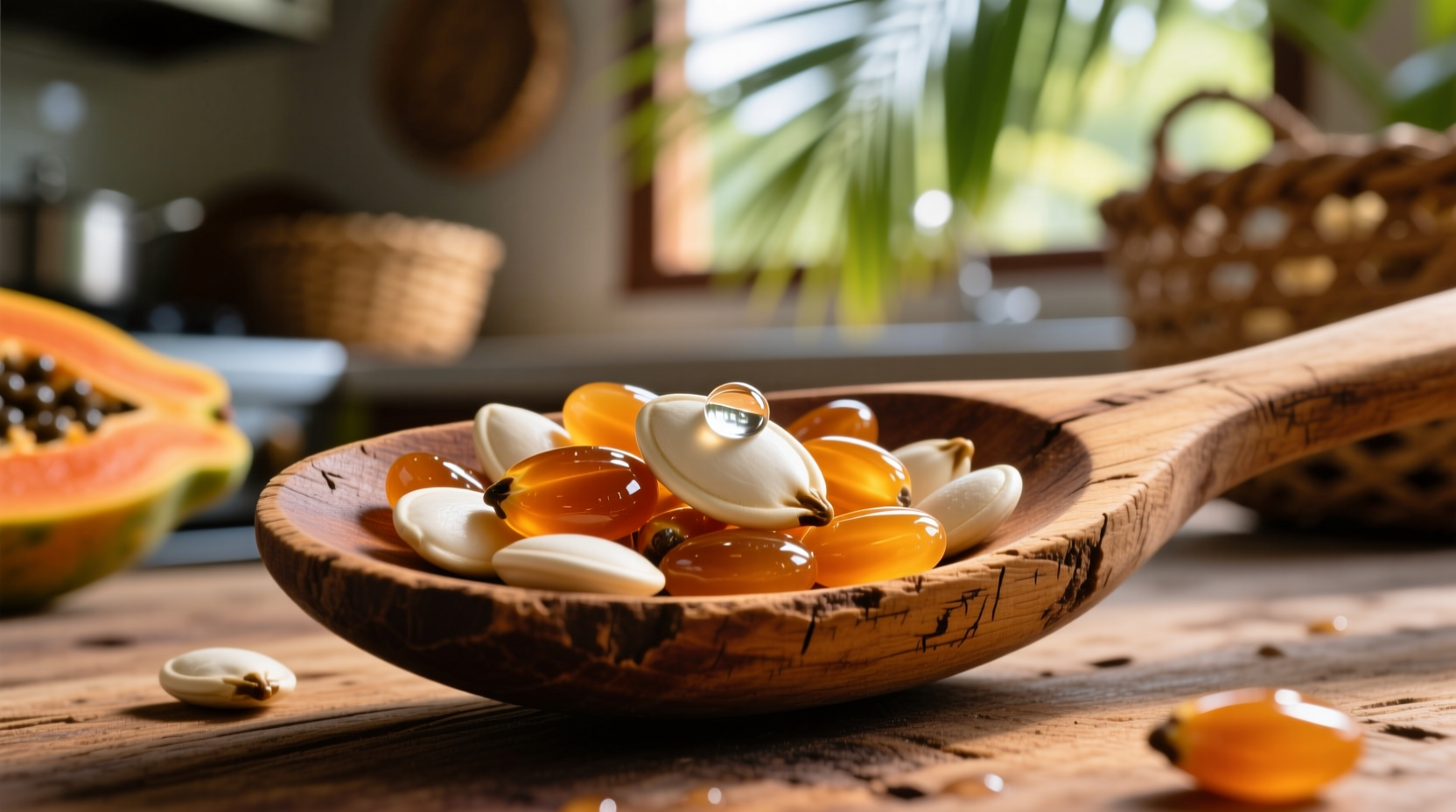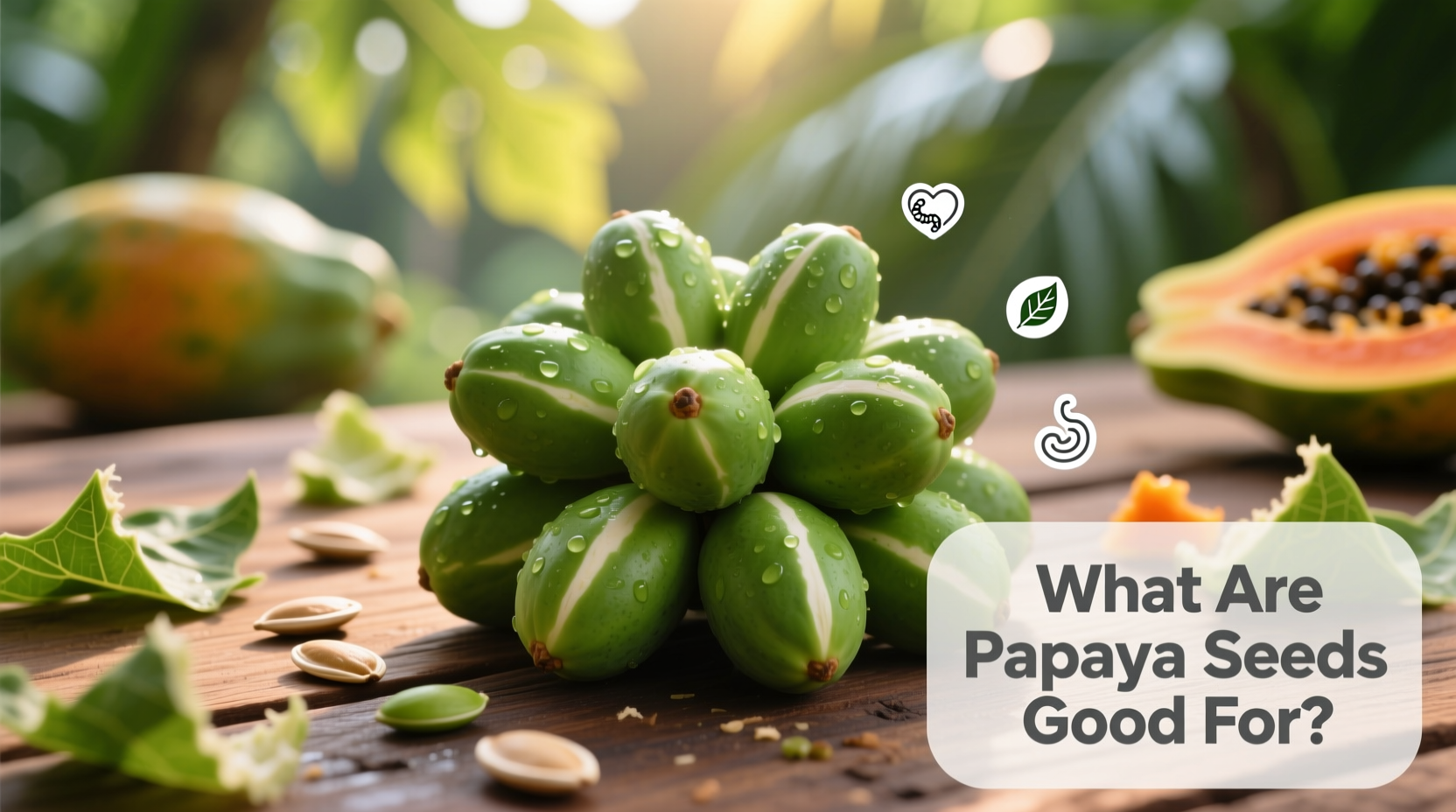Papaya seeds offer multiple culinary and wellness applications: they're rich in enzymes for digestion, contain healthy fats and protein, add a peppery flavor to dishes, and have traditional uses in supporting liver health. When consumed in moderation (1-2 teaspoons daily), they provide nutritional benefits without significant risks for most adults.
Unlocking the Hidden Power of Papaya Seeds
Most people discard papaya seeds without a second thought, but these tiny black pearls pack surprising nutritional value and culinary versatility. Unlike many superfood claims that lack scientific backing, papaya seeds have documented properties that make them worth incorporating into your diet—with proper understanding of their limitations and best uses.
What Exactly Are Papaya Seeds?
Nestled inside the center of ripe papayas, these small, round seeds have a crunchy texture and distinctive peppery flavor with hints of bitterness. While often removed before eating the fruit, they contain concentrated nutrients not found in the flesh. Historically, cultures across tropical regions have utilized papaya seeds for both culinary and traditional wellness practices.
| Nutrient | Per 1 Teaspoon (2g) | Primary Benefit |
|---|---|---|
| Protein | 0.4g | Muscle maintenance |
| Healthy Fats | 1.2g | Heart and brain health |
| Dietary Fiber | 0.5g | Digestive support |
| Vitamin C | 1.8mg | Immune function |
| Papain Enzyme | Significant amount | Protein digestion |
This nutritional profile explains why papaya seeds have been valued across traditional medicine systems, though modern science provides more specific insights into their actual benefits and limitations.
Practical Culinary Applications You Can Try Today
Forget expensive specialty ingredients—papaya seeds transform from waste to kitchen asset with minimal effort. Their peppery bite works as a natural seasoning alternative with nutritional advantages over processed options.
Flavor Profile and Preparation Basics
Fresh papaya seeds have a slightly bitter, peppery taste reminiscent of black pepper with hints of mustard. When dried, they develop a more intense flavor profile. To prepare:
- Fresh use: Scoop seeds from ripe papaya, rinse thoroughly to remove membrane
- Drying method: Spread on parchment paper for 2-3 days until crisp
- Storage: Keep in airtight container for up to 2 months

Everyday Recipe Integration
Professional chefs and home cooks alike incorporate papaya seeds in these practical ways:
- Salad topper: Replace black pepper with crushed fresh seeds for added nutrition
- Marinade component: Blend with citrus and oil for tenderizing meats
- Smoothie booster: Add 1/2 teaspoon to morning smoothies for enzyme benefits
- Dressing enhancer: Infuse vinegar with dried seeds for unique flavor
Culinary expert Sarah Johnson notes: "In Southeast Asian cooking traditions, papaya seeds were never considered waste—they were valued for their digestive properties after heavy meals. This practical wisdom aligns with modern understanding of their enzyme content."
Evidence-Based Benefits: What Research Actually Shows
While traditional uses abound, scientific research provides clearer boundaries for realistic expectations. The National Center for Complementary and Integrative Health (NCCIH) emphasizes evaluating traditional claims against clinical evidence.
Digestive Support with Scientific Backing
The most well-documented benefit relates to digestive health. Papaya seeds contain proteolytic enzymes, particularly papain, which helps break down proteins. A 2020 review published in Nutrients confirmed these enzymes support protein digestion, particularly beneficial after high-protein meals.
Unlike papaya fruit which loses enzyme activity when cooked, the seeds maintain their enzymatic properties through moderate heat, making them versatile for culinary applications.
Important Context Boundaries
Understanding when papaya seeds provide genuine benefit versus when claims exceed evidence is crucial:
- Effective for: Supporting normal digestive function, adding plant-based protein to diet, culinary flavor enhancement
- Not proven for: Treating medical conditions, significant weight loss, or replacing medical treatments
- Limitations: Should be avoided during pregnancy due to potential uterine stimulation effects noted in traditional medicine systems
- Dosage: 1-2 teaspoons daily is sufficient for culinary and nutritional benefits
The U.S. Department of Agriculture's research on tropical fruit byproducts confirms papaya seeds contain valuable nutrients but cautions against viewing them as miracle cures (USDA Agricultural Research Service).
How to Safely Incorporate Papaya Seeds Into Your Routine
Getting started with papaya seeds requires understanding proper preparation and realistic expectations. Here's a practical implementation guide:
Step-by-Step Integration Plan
- Start small: Begin with 1/2 teaspoon of fresh or dried seeds daily
- Monitor response: Track digestive changes over 2 weeks
- Gradual increase: Move to 1 teaspoon if well-tolerated
- Variety rotation: Alternate between fresh and dried forms for different flavor profiles
Safety Considerations You Should Know
While generally safe for most adults, certain precautions apply:
- Pregnant women should avoid papaya seeds due to potential effects on uterine activity
- Those with latex allergies may experience cross-reactivity
- Excessive consumption (more than 1 tablespoon daily) may cause digestive upset
- Consult your healthcare provider if taking blood thinners or managing chronic conditions
The Mayo Clinic advises that while papaya seeds offer nutritional benefits, they should complement rather than replace conventional medical treatments for health conditions (Mayo Clinic Nutrition Resources).
Common Questions About Papaya Seeds
Based on frequent inquiries from culinary enthusiasts and health-conscious individuals, here are practical answers to the most common questions:











 浙公网安备
33010002000092号
浙公网安备
33010002000092号 浙B2-20120091-4
浙B2-20120091-4